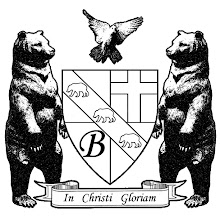"And the Word became flesh and dwelt among us, full of grace and truth; we have beheld his glory, glory as of the only Son from the Father."
For me (and, I would guess, for many Christians), this verse is so familiar that it's easy to pass right over its extraordinary message with hardly a thought: "'And the Word became blah blah blah,' yeah, tell me something I don't know." After 2,000 years, Christians have grown used to the idea that God became man in the person of Jesus Christ. It's a given. It's rote. It's our starting point.
I think we've lost, for the most part, a sense of just how earth-shattering this truth is. "And the Word became flesh and dwelt among us." This is God we're talking about, as John 1:1 reminds us. God became a man. God, the uncreated One Who created the universe out of nothing. God -- infinite and eternal, omnipotent and omniscient, infinitely superior to any person -- became a man. Any honest believer will have to admit, upon reflection, that this is almost unbelievable.
And many did, in fact, find it unbelievable. During the early centuries of Christianity, a number of heresies were put forth by people who just couldn't accept that God would actually become a man, that Jesus could truly be both man and God.
And yet it happened, John insists in this pivotal verse in the prologue of his Gospel. As the Navarre commentators note, "This is a text central to the mystery of Christ. It expresses in a very condensed form the unfathomable fact of the incarnation of the Son of God."
Tuesday, September 25, 2007
Subscribe to:
Post Comments (Atom)


1 comment:
This is great!!! Thanks
Post a Comment